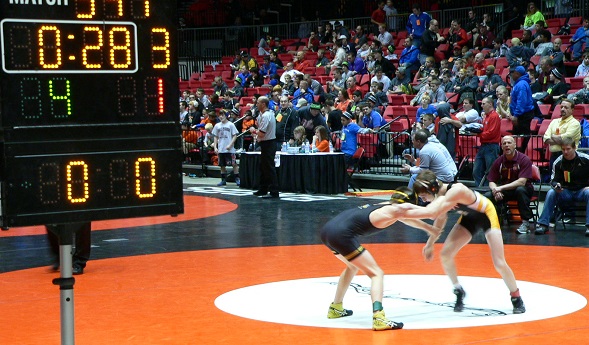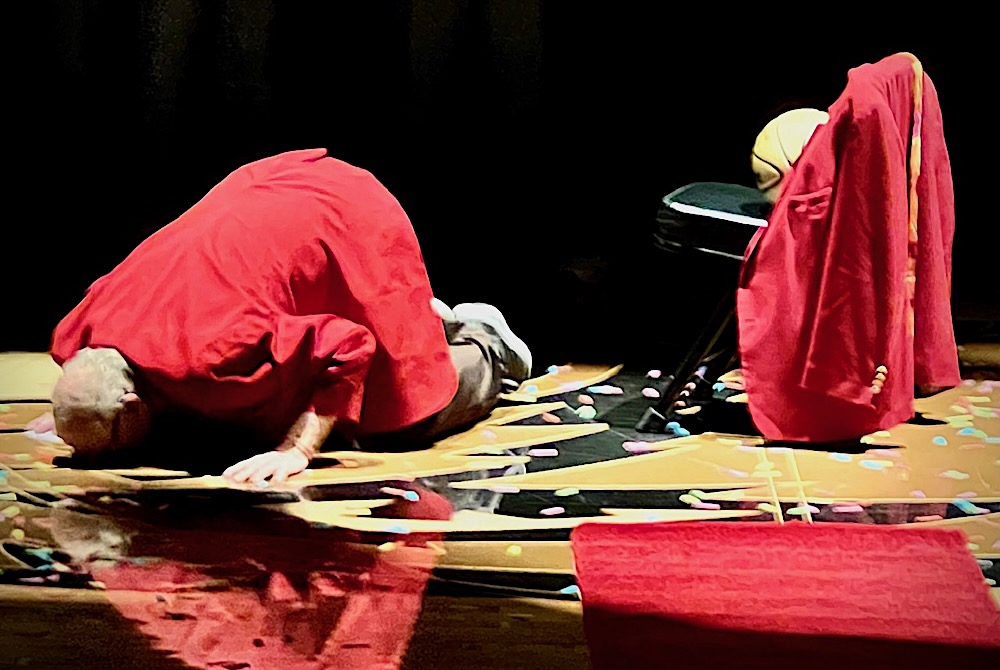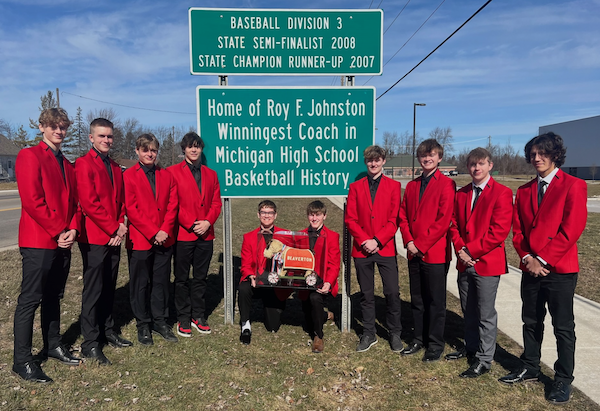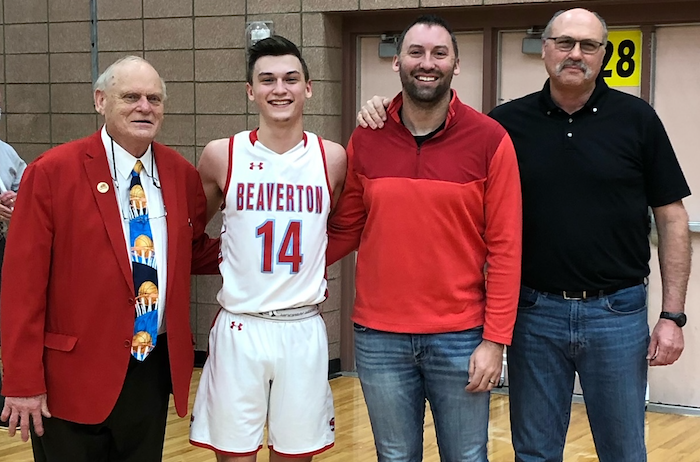
Answers from the Athletes
By
Rob Kaminski
MHSAA benchmarks editor
May 22, 2014
By Rob Kaminski
MHSAA benchmarks editor
MHSAA Student Advisory Council members were asked their opinions on several of the current issues facing the MHSAA Junior High/Middle School Committee and the MHSAA JH/MS Task Force. Students also shared experiences from their junior high/middle school days and from participation with non-school teams. Following is a sampling of responses:
Length of Contests and Seasons
Based on your junior high/middle school experiences, would you favor an increase in the number of contests/events that a junior high/middle school is allowed to play? Would you favor longer game times?
Kiersten Mead, Saginaw Swan Valley: “I personally don't believe that longer seasons are necessary. In middle school, student athletes are just starting to learn how to balance sports and school, so I think that the season time is already pretty reasonable.
“I do, however, believe that longer games would be really beneficial to all ages. It would allow more students to play and participate.”
Jonathan Perry, McBain Northern Michigan Christian: “When I was playing, I wish my season would have been longer, but it is at a reasonable length. It would be harder on parents having a middle school player and a high school player, but it would get you more ready for a high school-length schedule.
“The games are at a reasonable length also. The one benefit of having more games and longer games is that more kids get to play who otherwise might not if they had a shorter game or season.”
Connor Thomas, Marlette: “As a player, I would be totally in favor. If I were an adult, I would say no because of the traveling. As for the lengths of games, again, I’d favor it as a player. But with schools that have A and B teams for both grades, that could be a late night.”
Kristen Law, Bloomfield Hills Andover: “I really enjoyed playing in middle school, and I would have loved to be able to play more. Increasing the length of games might depend on the sport. For tennis, from what I remember, the matches were a shortened version of what we play in high school, and I thought they were appropriate given the level of the majority of the players that were competing.”
Zack Nine, Pinconning: “Based on my middle school sports experience, I would favor an increase in the number of contests and a longer game time. These changes would give athletes who do not get much playing time a chance to gain more experience. I also believe that more games and a longer game length would keep our youth in better shape and better prepare them for high school athletics through an easier transition.”
Mandy Paull, Cheboygan: “I think that middle school sports should be allowed to play more games, but I do not think that the length of games should be increased.”
Coby Ryan Manistique: “I would favor an increase in the number of contests. The seasons are quite short and go by too quickly, in my opinion.
“I would also favor longer game times. With this, more kids will get the opportunity to play, and it will also make the travel and the time invested more worthwhile.”
6th-Grade Participation
Is it time to also include 6th-graders at junior high/middle schools under MHSAA guidelines? Consider enrollments, sports and participation with 7th- and 8th-graders.
Eliza Beird, Holland Black River: “I would favor the addition of 6th-graders in all sports. This would allow for the possibility of two teams in some sports and it gets the kids playing with people they might be playing with for the rest of their high school careers.
“It is definitely easier to put 6th-graders with 7th- and 8th-graders at a smaller school because one grade usually won’t out-number another grade. In a big school, a bunch of 8th-graders will try out for the team because more go to a school. In larger schools, 6th-graders would have a chance to make only a 6th-grade team.
Hayden Smith, Hamilton: “I think it’s time for 6th-graders to be included, but not in all sports; just the non-contact ones. The various sizes of schools would make it easier for some to compete and harder for others, but it shouldn’t matter overall. All schools’ 6th-graders should be able to play. I think that would be a great experience for them.”
Mandy Paull, Cheboygan: “I think that 6th-grade students should be able to play middle school sports. Sports are a good way to initiate incoming elementary students to the middle school as well as provide a fun, constructive activity that they can participate in with their friends, and a way to make new ones as well.
“The 6th-grade athletes should only be mixed with the 7th and 8th grade in cross country and track, and have their own teams for sports like volleyball and basketball, just as the 7th- and 8th- graders do. Only non-contact sports should mix all grades.”
Connor Thomas, Marlette: “Coming from a smaller community, I think the MHSAA should include 6th-graders in only the schools that need them, such as small Class D schools. They should be allowed to play with 7th- and 8th-graders as long as the schools need them, and aren't bringing them up to have a ‘dream team.’ Enrollment has to be a factor; the schools should be struggling for numbers in order to have a 6th-grader on a team.”
Zack Nine, Pinconning: “I believe that 6th- graders should not be held accountable to MHSAA regulations. My opinion largely stems from the fact that not every school includes 6th grade as part of its middle school. I know mine does not. It would be difficult to regulate the participation of 6th-graders in some schools (because they're considered middle schoolers) while other schools cannot let their 6th-grade elementary students compete.”
Jonathan Perry, McBain Northern Michigan Christian: “I think all sports should be included if 6th-graders were allowed to play. I think it’s more helpful to small schools, but wouldn’t limit it based on enrollment. I go to a small school; last year my school did not have enough kids for a 7th-grade team.”
Kiersten Mead, Saginaw Swan Valley: “I understand the monetary considerations schools may have with 6th-grade teams through the MHSAA, but I do believe that the MHSAA should start setting guidelines for the schools which see it as feasible. Middle schools don't have to go through the MHSAA, but I believe that by including 6th-graders, it may generate a positive reaction from member schools.
“I feel like as long as the coaches don't see a major physical disadvantage to it, then it would be okay for 6th-graders to participate with the 7th and 8th grade in all sports. Non-contact sports would most definitely be alright, because in high school, you compete against all ages anyways.
Coby Ryan Manistique: “I believe that it is time for 6th-graders to get the chance to participate in athletics, regardless of school size. By choice, a child should always be given the opportunity to be active, stay out of trouble, learn about teamwork and leadership, and build a foundation for fundamentals that will be used for the rest of their athletic careers. Many schools do not have locally run programs, and the MHSAA running it would give thousands more kids a chance to play.”
Kristen Law, Bloomfield Hills Andover: “When I was in 6th grade, I was competing against 7th- and 8th-graders (on community teams), and I probably would have been upset if I couldn't compete against them. Sixth-grade participation should definitely be allowed in non-contact sports, but I don't know too much about contact sports and the risk of injury to 6th-graders if it were to be allowed.
“I don't think the size of the school should determine whether or not 6th-graders can compete against 7th- and 8th-graders.”
Community and Club Sports
If you played community sports during your JH/MS years, how did the experience compare with school sports? If you could have played MHSAA-based sports in 6th grade, would you have done so?
Emileigh Ferguson, Bear Lake: “I played little league softball prior to middle school, until 5th grade. I prefer MHSAA sports over other kinds because they are more serious and organized. My school has basketball for 5th and 6th grade so we don’t play with middle school.”
Eliza Beird, Holland Black River: “I played soccer and basketball from Kindergarten through 6th grade and still play club sports. My outside-of-school sports tended to be a bit better.
“If there were MHSAA sports in 6th grade, I would have definitely played basketball. I already played with a bunch of girls from school so playing for my school would not have been much different. Plus it’s fun to play for my school. I probably would not have played soccer because the club team I was on at the time was quite a bit better than the school team.”
Hayden Smith, Hamilton: “In my experience (community sports) was somewhat similar, but still different. School sports weren't coached by parents anymore; the best players got to start. Also, it was different in that a lot of kids stopped playing; only the ones who really liked it kept playing. However, it was similar because there were always people (parents and kids) complaining about playing time. It was similar in that there was always a strong community at your back.
“If I could have played school sports earlier, I would have done so because of the aspect of representing my community and school. I think I still would have done the travel baseball stuff, but that is always in the summer.”
Mandy Paull, Cheboygan: “I played girls little league softball from 3rd to 5th grade, and house hockey from 1st grade to 9th. In middle school the sports were more serious and I enjoyed them much more. As a team we would dress up for our games, and we got to travel on a bus to away games. There was a much stronger bond and all the players were more serious. The teams were also better in middle school due to tryouts.
“I definitely would have played middle school sports in 6th grade as opposed to community teams.”
Jonathan Perry, McBain Northern Michigan Christian: “I did not notice a huge difference between community sports and school sports. The big difference in community sports is that you get a wide range of kids, not just the kids in your school. I like playing the school sports better because I knew that the kids I was playing with were who I would play high school sports with.
“I would have played school sports in 6th-grade or earlier if the option was there. A lot of community sports I played on (were) all about winning. The school team sports provide learning sessions for both sports and life. It's an extension of the classroom. I saw that more with school sports than community sports.”
Kiersten Mead, Saginaw Swan Valley: “I did not play anything prior to middle school, but in 6th grade I was a part of an AAU volleyball team since my school did not offer a 6th-grade team. I also bowled in leagues at a few different bowling alleys.
“I definitely would have played with my school versus community. We really didn't have a solid AAU program in our area so the school team was much more organized. I found that the volleyball teams through my school were much more beneficial to me. We practiced on a regular basis, and it was nice to play with girls that I was already friends with. We were able to grow more as a team and gain a greater sense of unity. I believe that my school team made me a better athlete as well.”
Kristen Law, Bloomfield Hills Andover: “I enjoyed being able to play sports with my friends in middle school, but I also liked the competitiveness of the community- based sports I participated in. The middle school sports atmosphere didn't feel as competitive.
“When I was in 6th grade, I played tennis on the middle school team, but it was not affiliated with the MHSAA.”

Johnston Retires as Winningest Coach, Much More to Beaverton Dream He Built
By
Paul Costanzo
Special for MHSAA.com
March 15, 2024
Before Roy Johnston left the court that bears his name for the final time as Beaverton head boys basketball coach on Feb. 23, 1,500-plus fans, family and current and former players had one more chant.
 It wasn’t the name of the coach they all adored after he wrapped up the winningest career in MHSAA basketball history. It wasn’t even the school song, or a slogan.
It wasn’t the name of the coach they all adored after he wrapped up the winningest career in MHSAA basketball history. It wasn’t even the school song, or a slogan.
With Johnston pumping a raised fist, the community chanted “Judy” to honor his wife, who could not be at the game or celebration as she was battling cancer.
It was a fitting tribute to the woman behind the coach who became more than the face of the community, and one last opportunity for those fans to say thank you to her for her own efforts and sacrifices in helping the Beaverton become something pulled straight from the movie screen – the small-town sports tale complete with the iconic coach in the lead role and generations of locals living their dedication by filling the stands for every game.
Judy Johnston passed away this past Saturday, a little more than two weeks after the ceremony that honored her husband. She was 81.
All interviews for this story were completed prior to her passing, but a common theme when talking about Johnston’s 50-year career and importance to Beaverton was that the entire family, specifically Judy, had played a big role.
“His family has put forth an incredible amount of effort into our community,” said former player Brent Mishler. “In basketball and in general.”
Family is at the center of Johnston and Beaverton’s immense success over his 50 years. Not only has he coached multiple generations of several Beaverton families – including three generations of Mishlers – but he’s coached his own children, and grandchildren.
Small town programs often rely on players who have grown up around them and together, and Beaverton has that in spades.
“It was a dream,” former player and Johnston’s co-coach, Shad Woodruff, said of having his son Layk play for Johnston. “I got to play for Roy and be part of all that Beaverton basketball is – it’s not just a sport around here. We have video of (Layk) dribbling a basketball in the gym literally before he could walk. He’s been the little guy that always looked up to (Roy’s grandsons) Spencer Johnston and Carter Johnston, so just to be a part of Beaverton basketball is special.
 “It’s like when your kid gets there, you’re giving your kid to the community for a while and saying, ‘Here you go.’ It’s amazing to watch your son out there, especially in a community like ours. Roy has created this thing with Beaverton basketball where every Friday night, it’s like church. Everybody’s there.”
“It’s like when your kid gets there, you’re giving your kid to the community for a while and saying, ‘Here you go.’ It’s amazing to watch your son out there, especially in a community like ours. Roy has created this thing with Beaverton basketball where every Friday night, it’s like church. Everybody’s there.”
The numbers behind Johnston’s career, which started in 1966 in Yale, are remarkable. He holds the MHSAA record for wins by a boys basketball coach at 833, the vast majority coming at Beaverton, the program he took over in 1974.
The Beavers won 21 conference titles, 17 District titles and five Regional titles during Johnston’s 50 years, adding a run to the MHSAA Semifinals in 1984.
Just six of Johnston’s seasons ended in records below .500, and in a fitting tribute to their coach, this year’s Beavers scratched and clawed their way to a five-game win streak at the end of the season to ensure his last wouldn’t be No. 7, finishing the year 12-12 with a loss to Beal City in the District Final.
Included in that streak was a 54-45 victory over rival Gladwin on the night Johnston was honored. The Beavers trailed by as many as nine during the second half before rallying to win, led by a 26-rebound performance from 6-foot, 1½-inch senior Reese Longstreth, who Woodruff called the epitome of a Beaverton basketball player.
“I’ve been fortunate to be around Roy for 40 years, and I’ve seen a lot of great wins, especially in that gym,” Woodruff said. “I can’t put anything above that one.”
Layk Woodruff made the final basket in the game, which will forever be the final basket made in Roy F. Johnston Gymnasium during the Johnston era.
“It was super emotional, I’d say, for a bunch of reasons,” Layk Woodruff said of the game. “We felt like it was our responsibility, we had to that game for Roy. It was a rivalry game, last home game of the year – there were a lot of emotions when that game ended. I didn’t even think about (hitting the final shot) until a couple days later. Now that I get to think about it, it’s pretty cool to say that was me. I’ll always remember that.”
One celebration led to another, as Johnston’s retirement ceremony followed the game. A tribute video created by Beaverton graduate Jason Brown, who owns a digital media company, and narrated by longtime Beaverton public address announcer Scott Govitz was played. Govitz admitted to getting choked up at times while recording the video.
“There were a couple times where I did more than one take,” he said.
Govitz was at the center of a massive effort to create the ceremony, with support from athletic director Will Gaudard, school staff and members of the community, including multiple businesses and organizations. Govitz had arranged for special lighting and video screens for the presentation. Special tickets were printed for the night – which also happened to be Beaverton’s Hall of Fame night. Following the video, a spotlight was shone on center court, where a single chair sat, one of Johnston’s vintage red blazers draped over its back.
The more than 100 former players who had come to celebrate their coach each had a glow stick they cracked on, and walked through the darkness to surround the chair.
Then Johnston walked the red carpet – much like his starters have for years when being introduced prior to games – and addressed the crowd.
He didn’t speak for long, but as Johnston so often does, he hit all the right notes, mixing gratitude with humor.
“Gladwin County is a great place to raise a good family,” Johnston said after thanking the traveling contingent from Gladwin.
“I want to thank everyone for a great run. Fifty years. A great run.”
For outsiders, it was a chance to see the softer side of Johnston rather than the man intensely patrolling the sidelines during games. It was a glimpse at the man that handed out suckers before games to every kid in attendance.
 “He belonged on an episode of ‘Grumpy Old Men,’ and he still could play the role,” Govitz said with a laugh. “He would always say, ‘Don’t listen to the way I say it, listen to what I say.’ He just wants you to do things correctly. His players, maybe they didn’t adore it at the time, but they adore it now. Being a part of that program taught them more than basketball skills. … What will happen, once they leave, they find that great respect for it. And, he does things quietly that no one ever knows or sees – helping someone in need, especially the ones in college, checking up on them or sending them some money. That helps build a program and build relationships. He said in his last speech that it’s about getting along with others. If you can’t get along well with others, you can’t get along. That’s what it’s about.”
“He belonged on an episode of ‘Grumpy Old Men,’ and he still could play the role,” Govitz said with a laugh. “He would always say, ‘Don’t listen to the way I say it, listen to what I say.’ He just wants you to do things correctly. His players, maybe they didn’t adore it at the time, but they adore it now. Being a part of that program taught them more than basketball skills. … What will happen, once they leave, they find that great respect for it. And, he does things quietly that no one ever knows or sees – helping someone in need, especially the ones in college, checking up on them or sending them some money. That helps build a program and build relationships. He said in his last speech that it’s about getting along with others. If you can’t get along well with others, you can’t get along. That’s what it’s about.”
Mishler echoed that sentiment, and some of the memories that stick out most to the 2002 graduate were when Johnston got after him in his own special way.
“Playing for him was a privilege,” said Mishler, whose father Steve played for Johnston in the ’70s, and his son Cameron played through 2021. “The life lessons he taught set you up for success in life for the future. ‘You need to hear what I’m saying, not the method I’m saying it.’ That’s so true. Being honest and having expectations, and expecting people to hit those expectations, is not a bad thing.”
After Johnston was done speaking, he knelt down and kissed the floor to say goodbye to the job he’s done for most of his life, and in a way, thank you, to the community he helped create and that he’ll now need more than ever.
“Roy’s good at making you feel like he’s not big on that stuff (being recognized), and he isn’t, but he definitely does appreciate it,” Shad Woodruff said. “He understands how important he is to the community, and that he’s done something really special. He understands what he’s done is a pretty big feat, but he doesn’t talk about it. He doesn’t brag about it.”
 Paul Costanzo served as a sportswriter at The Port Huron Times Herald from 2006-15, including three years as lead sportswriter, and prior to that as sports editor at the Hillsdale Daily News from 2005-06. He can be reached at [email protected] with story ideas for Genesee, Lapeer, St. Clair, Sanilac, Huron, Tuscola, Saginaw, Bay, Arenac, Midland and Gladwin counties.
Paul Costanzo served as a sportswriter at The Port Huron Times Herald from 2006-15, including three years as lead sportswriter, and prior to that as sports editor at the Hillsdale Daily News from 2005-06. He can be reached at [email protected] with story ideas for Genesee, Lapeer, St. Clair, Sanilac, Huron, Tuscola, Saginaw, Bay, Arenac, Midland and Gladwin counties.
PHOTOS (Top) Beaverton boys basketball coach Roy Johnston kisses the court that bears his name during a celebration of his retirement Feb. 23. (Middle) This season’s team stands at the entrance to town with signs announcing the program and coach’s successes. (Below) Johnston takes a photo with three generations of Mishlers – Cameron, Brent and Steve. (Top photo by Stephanie Johnston.)

